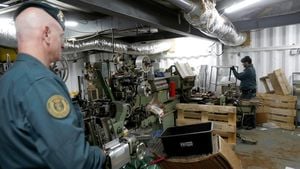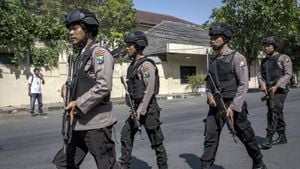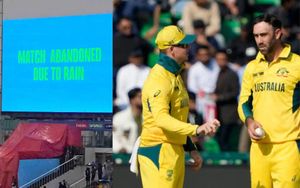The South Korean Constitutional Court was the center of political drama on February 25, 2025, as lawmakers presented their final arguments for the impeachment of President Yoon Suk-yeol. This significant hearing, held at the court located in Jongno, Seoul, symbolized the deepening political divide and the challenges facing South Korea's democracy.
Leading the impeachment efforts was Jeong Cheong-rae, head of the impeachment committee, who made impassioned statements urging the court to remove Yoon from office. "The trust of the people has left President Yoon Suk-yeol; a president who has lost trust cannot stand again," Jeong declared, signaling public sentiment as one of the core arguments for impeachment.
During the hearing, Jeong articulated several key points, arguing Yoon's governance exhibited clear violations of constitutional principles. "The constitution is the collective agreement of the public; it must be upheld," he emphasized, highlighting the importance of protecting democratic values.
The conversation around Yoon's potential return to power was fraught with tension, as Jeong warned of the dangers such an outcome could pose. "He is seen as someone who may resort to declaring martial law again," he warned, referencing fears stemming from Yoon's previous actions during his presidency. Jeong's assertions painted Yoon not only as politically unfit but as a significant threat to stability and democracy.
Jeong's arguments were grounded in the belief of upholding constitutional integrity. He stated, "The constitution was written with the blood of those who fought for our freedom; it needs to be protected against those who threaten democracy," reinforcing the gravity of the situation.
The impeachment proceedings captured the public's attention, echoing broader concerns about democratic governance in South Korea. Critics of Yoon's administration have long accused it of undermining civil liberties and concentrating power during delicate political circumstances.
The proceedings did not stop at the surface level; they were infused with references to Yoon's alleged intentions and actions. Jeong dismissed assertions from Yoon's camp, stating, "His delusions about electoral fraud are merely excuses raised post-factum." This remark targeted claims from the president's side alleging electoral interference, emphasizing the need for accountability and transparency.
The atmosphere of the court was thick with anticipation, as testimonies revealed the fractures within the political fabric of South Korea. Lawmakers on both sides of the aisle watched closely; this ruling could redefine the political playing field, determining Yoon's future and affecting public perceptions of democracy.
Legal experts predict the ruling will have sweeping ramifications beyond the courtroom, influencing next steps for both the ruling party and the opposition. With Jeong's passionate plea laying bare the cracks between the government and the governed, many wait to see if the Constitutional Court will uphold the principles of democracy or allow perceived injustices to continue.
Jeong's closing statements reverberated with urgency, as he pressed the court for the sake of the nation: "We must protect our democracy and our constitution from those who wish to undermine it. The stakes are high, and we cannot afford to falter now." The outcome remains uncertain, but the hopes of many now rest on the court's decision, bringing to light the very essence of democracy in South Korea.



